Lesley Lokko has spent the past two years planning the biggest and most famous architecture festival in the world – the Venice Biennale.
“It’s been a whirlwind,” says the Dundee-born architect, writer and academic who is the event director.
“The last six months have been particularly intense. I’m sure every conservative says this, but you lose sight of not just what’s going on in the world, but how what you’ve done is going to interact with the world.
“You released a statement but you have no idea how people will react.”

Lesley Lokko was born in Dundee in 1964. Her father was a surgeon from Ghana who studied medicine at the University of St Andrews, and her mother was from Newport-on-Tay.
She lived in Scotland as a child, but when her parents divorced, she moved to Ghana with her father. This is where she spent her teenage years.
She studied Hebrew, Arabic and sociology before deciding on architecture at UCL in London.
But working as an architect, designing houses, turned out not to be for her. What she wanted was to teach and encourage new architects.
In addition to teaching around the world, she established the African Futures Institute, an architecture school and events platform based in Accra.

Africa is at the heart of its first biennial.
The event will feature 64 nations in historic pavilions. 89 other countries, including Scotland, feature in independent sites across the Italian city.
The artistic version of the festival has been held here every two years since 1895. The architectural version has been held in the intervening years since 1975.
More than half of the exhibitors this year are from the African continent or the diaspora. There’s also gender parity and an average age of 43, which contrasts with an industry dominated by older white male voices.
Lesley says she doesn’t just want to tell a different story, but change who’s telling it.
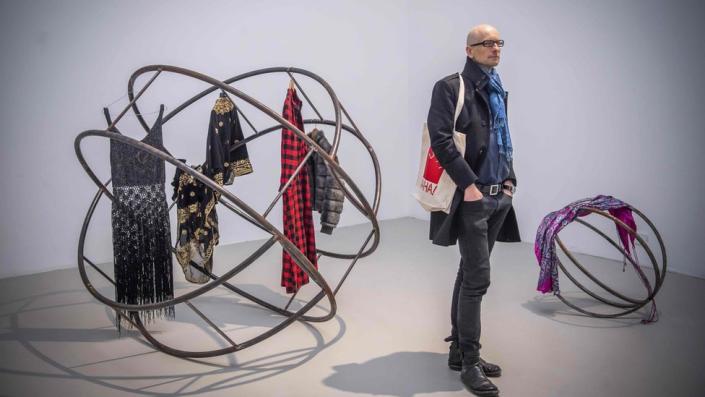
“I hope people will come out of this and realize that we have as much in common as we have things that divide us,” she says.
“I think there are people who will come to this exhibition expecting to see a completely different world. And of course the 54 countries of Africa are not ‘another world’, they are really part of this world.”
But Scotland remains an important part of her heritage, and she returns to it regularly.
“Scotland has always been very emotional for me,” she says.
“I remember one of my first reading tours was in Edinburgh and as soon as I got off the plane I suddenly felt I knew the light.
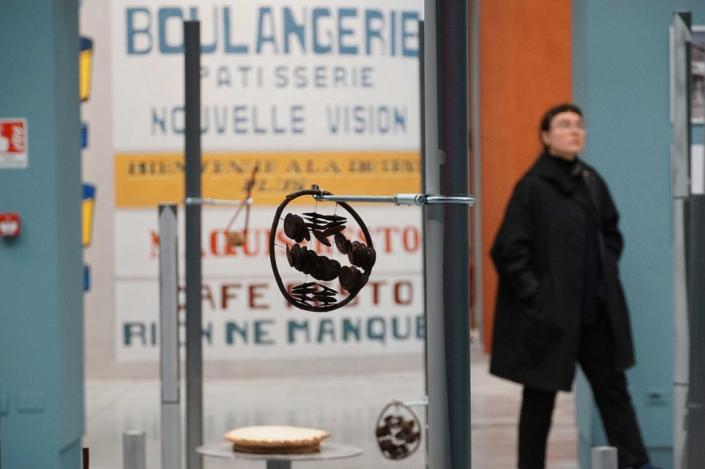
“It was the first time that I understood that places remain in you. Not only through language, but through temperature, light and sound.
“I felt incredibly at home there, so I go back to Edinburgh regularly and that’s where I go back to write.”
Her first novel, Sundowners, was published in 2004 and became a bestseller.
She squeals in embarrassment – or in pleasure? – when I describe it as Enid Blyton for adults, featuring four girls at a posh English boarding school.
Since then, she has published 11 other novels and is writing a 12th.

Lesley says writing isn’t all that different from architecture, requiring imagination and the ability to see things in 3D.
And with the world descending on Venice, she says she finds inspiration all around.
“The writers are still hard at work and the novel I have planned after this one will take place at an art biennale somewhere in the world.
“It probably won’t be Venice, but the conversations I have are so much food for the imagination. We never turn off.”
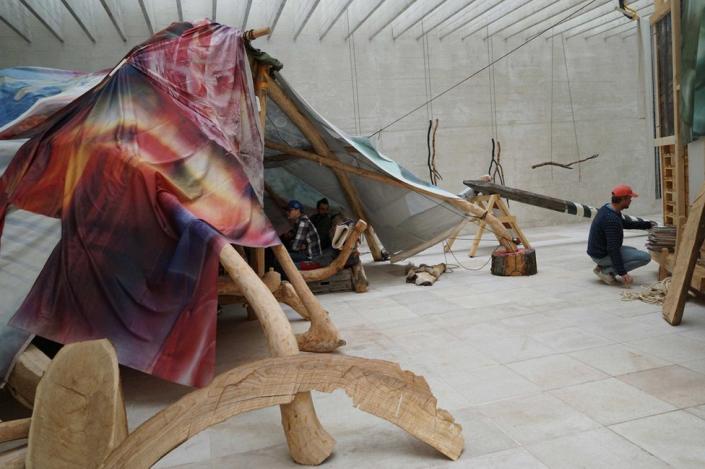
She is determined to make the Biennale more accessible.
She calls it “the exhibition” rather than the biennale, and to “practitioners” rather than architects – and although there will be plenty of African delegates at the opening, visitors to Africa are here in large numbers.
Even bringing artists to Venice was a challenge, with a number of his team being denied visas in time for the opening.
“The world of arts and culture is often way ahead of the world of politics,” she says.
“Unfortunately, at a time like this, the two worlds collide.”
She said it was heartbreaking that some members of her team, including people who had contributed to the exhibit, were denied visas.

“But you also hope that those kinds of exposures and those kinds of conversations are the beginning of a change,” she says.
“It takes a long time for politics to catch up.
“People have said the controversy soured the show, but that’s not true. I think, for me, it soured it.”
I tell her about the Ethiopian architect I met at the door, who told me she had worked in Glasgow over 30 years ago and loved traveling to Skye in her spare time.
The fleeting connection makes Lesley Lokko smile. It was on the island that she first met the Hebridean design firm Dualchas and invited them to exhibit in Venice.
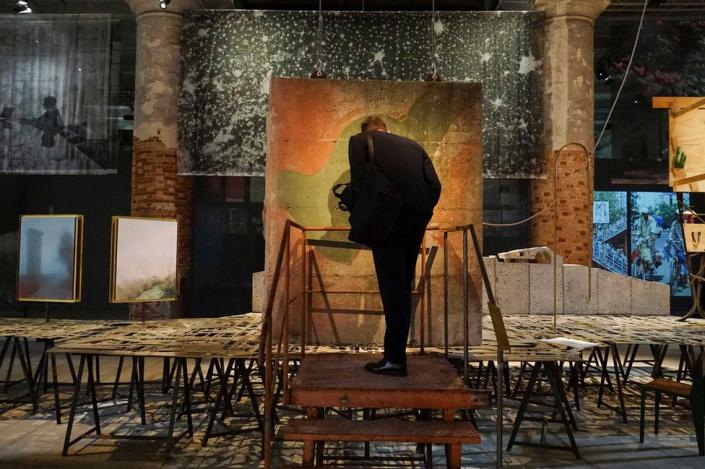
“Personal relationships, stories and threads have been very important to me. I met Dualchas on Skye through a very close friend,” she says.
“And their work around questions of identity, heritage and language absolutely resonates with the exhibition as a whole.
“So I really hope people make those connections across geography so that we understand that the nation state is not what defines us – there are things that are much deeper and older than your passport.”
Their installation – also called Dualchas, which means cultural heritage – is a personal reflection on the roots of their practice and a celebration of Highland and Island architecture.
Part of the mission was to keep their involvement as light as possible.
In the end, the group brought only a violin case containing a violin and a Gaelic Bible, artifacts linking the families of directors Rory Flyn and Neil Stephen.
The four-part film installation was made using local resources and can later be shot in Scotland.
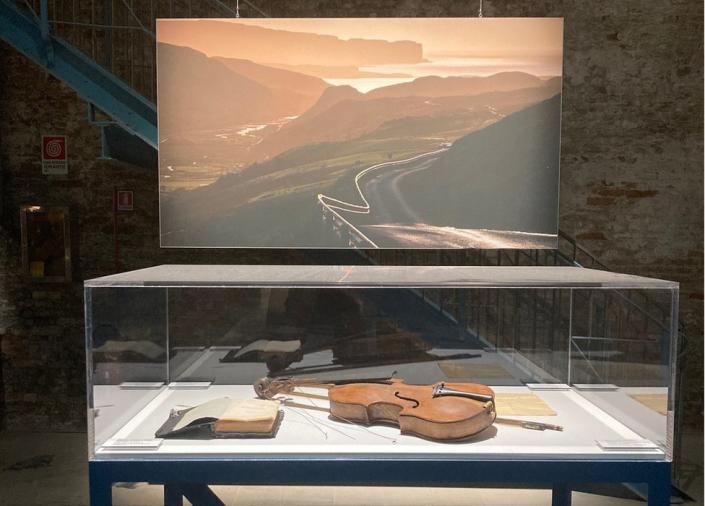
Scotland is represented alongside the main festival with an exhibition exploring land issues around Loch Ness, Orkney and Ravenscraig.
Throughout the festival, the themes of climate change and sustainability are ubiquitous, fitting for a city where mass tourism continues to cause enormous damage.
The Scotland + Venice partnership announced earlier this year that it intended to suspend its participation in the event and will hold a consultation to decide on its future participation.
Lesley Lokko acknowledges the challenges of organizing a festival in such a fragile environment.
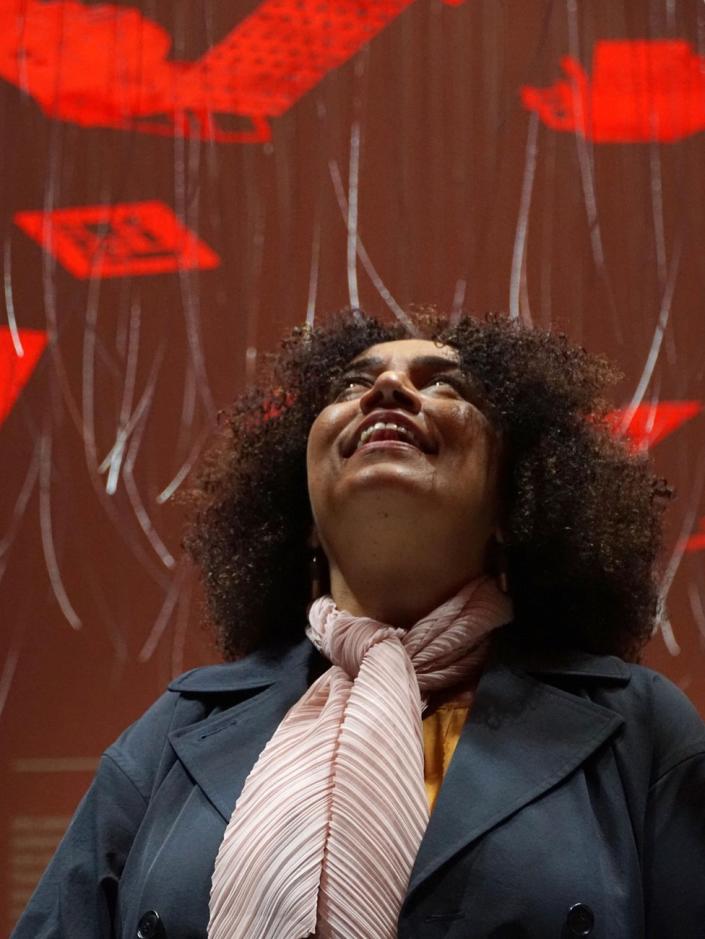
“Issues of resources, carbon footprint, flights bringing all these people here…I had to think hard about the impact.
“For me, the impact outweighed the cost here because it’s one of the few opportunities you have to engage with your colleagues in this way.”
And she says the chance to showcase African architects and architecture was too important an opportunity to miss.
“Maybe it’s the perfect time for this kind of exposure,” she adds.
“I hope that the next time a gathering like this takes place, it will not be under the Africa rubric. It will not be ‘other’.
“I happen to be in the right place at the right time to open the door but you always want the door to stay open.”

The Biennale Architettura 2023 runs until Sunday, November 26.
